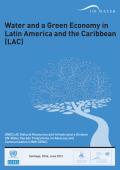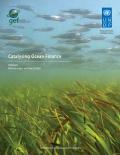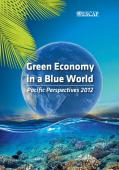
The report draws on presentations and discussions held during the LAC sessions of the International Conference "Water in the Green Economy in Practice: Towards Rio+20," held from 3-5 October 2011, in Zaragoza, Spain.
Launched during the UN Conference on Sustainable Development (UNCSD, or Rio+20), this report is intended as a best practices guide. It contains four sections and two annexes. Section I discusses mainstreaming water into a green economy in agriculture, industry, cities and watersheds. Section II examines the challenges, approaches and lessons learned on water and green economy in LAC. Section III presents case studies from Barbados, Colombia, Ecuador and Guatemala. Section IV presents "the expert's perspective," answers to a series of questions put to three regional water experts.
Annex 1 offers "tools for changes," a brief review of economic incentives, green jobs, water cost recovery and financing, investments in the protection and improvement of biodiversity, promotion of water technologies. Annex 2 lists the issues presented for discussion at the Zaragoza Conference.


This publication suggests solutions that can be built into the design of urban development projects undertaken by the Asian Development Bank (ADB) to address the common problems and grievances of the urban poor, and to improve urban governance overall.
It also identifies successful or promising community-based approaches to dispute resolution that can be useful in urban project design.
It uses ADB's Governance policy as a framework for analyzing key findings of Access to Justice for the Urban Poor, a regional technical assistance grant to four developing member countries in Asia and the Pacific - Bangladesh, Indonesia, the Philippines, and Thailand. The findings consist of case studies illustrating typical problems encountered by the poor in connection with access to urban assets and services, and identifies the types of grievances or disputes that may arise because of these issues. The publication reproduces key case studies to illustrate significant concepts.
Universal access to safe, reliable energy is a necessary condition for providing the poor with safe water and sanitation, for maintaining adequate standards of living, and for achieiving the Millennium Development Goals. The Asian Development Bank recognizes the importance of electricity and water access for the poor and has committed to providing such access by establishing the Energy for All and Water for All initiatives.
While broad efforts aimed at regulatory reform and increasing energy and water access may be helpful, targeting interventions, measures, and approaches are often needed to ensure that the poor benefit from these efforts. This publication identifies specific infrastructure and utility service reform measures that can be taken to advance the interests of the poor.
